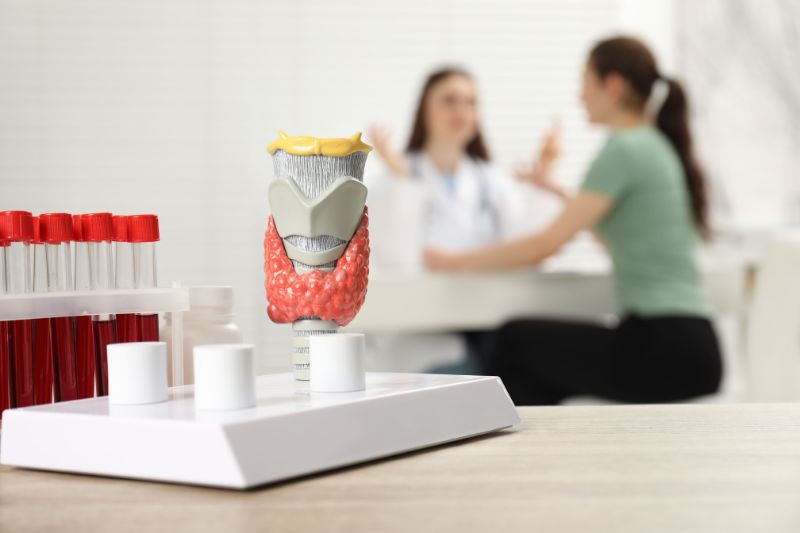
If you have hypothyroidism, you’re likely taking levothyroxine (LT4), the standard medication that replaces the T4 hormone your body isn’t producing enough of. Common examples include Levothyroxine, Levoxyl, and Synthroid. However, you may have noticed that even with normal TSH levels (the thyroid marker most doctors test, although it provides only limited information), you still experience stubborn symptoms like fatigue, weight gain, or brain fog. You're not alone. Research suggests that 10-20% of patients on LT4 therapy don’t feel their best.
An approach I have used for years is called combination therapy. This approach is gaining attention as a valid thyroid hormone replacement solution. This therapy involves using both LT4 and liothyronine (LT3) to better mimic the hormones naturally produced by a healthy thyroid gland.
To understand why combination therapy might be better, it's helpful to know the difference between T4 and T3.
The body’s main priority is maintaining a normal level of T3. While some people can efficiently convert T4 to T3, some may have a genetic variation or other factors that make this conversion less efficient. For these individuals, a T4-only medication may not provide enough of the active T3 hormone, leaving them with persistent symptoms.
Numerous studies have compared the effectiveness of LT4-only therapy to combination therapy. While they generally found both treatments to be equally effective in normalizing TSH levels, two key findings stand out:
In conclusion, for patients who continue to experience symptoms despite having normal TSH levels on LT4 monotherapy, the addition of T3 may be a valuable option. It's a personalized approach that addresses the possibility of inefficient T4-to-T3 conversion and focuses on a person's overall well-being, not just their lab results. If you feel like your current treatment isn't working for you, it may be worth discussing combination therapy with your doctor. T4 and T3 are both available as bioidentical hormone prescriptions.
Bianco, A. C. (2024). Emerging therapies in hypothyroidism. Annual Review of Medicine, 75(1), 307–319. https://doi.org/10.1146/annurev-med-060622-101007